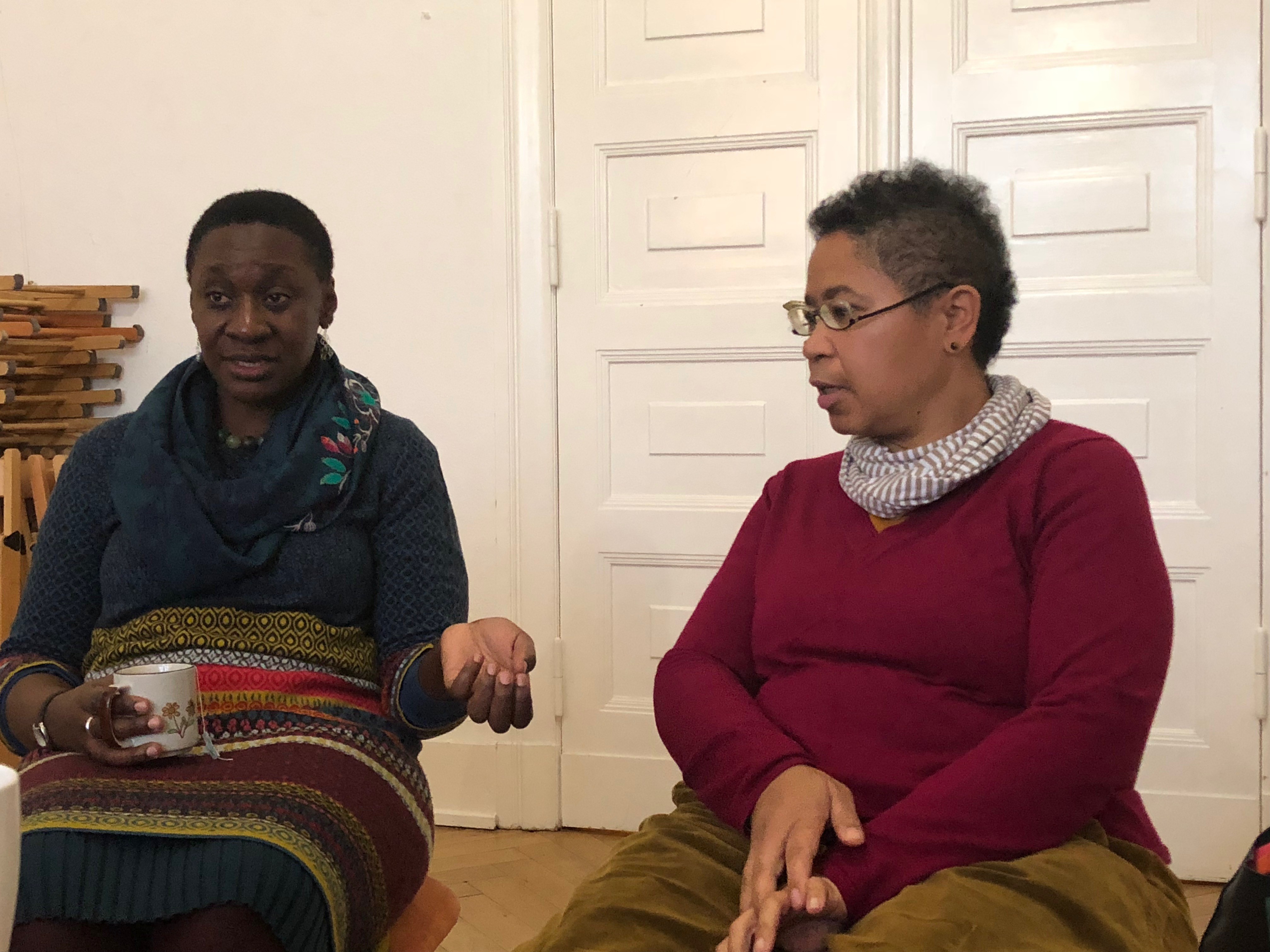This podcast—led and produced by Kai Mesman-Hallman—provides some final reflections on the Block 4 2017 section of Hidden Spaces, Hidden Narratives: Intersectionality Studies in Berlin with Professor Heidi R. Lewis. Throughout the block, the #FemGeniusesinBerlin have taken walking tours, visited museums and cultural centers, and met with activists and artists in the city to conduct situated examinations of how the identities of marginalized people and communities in Germany (especially in Berlin)—such as Black Germans, Turkish Germans, migrants, refugees, victims of Neo-Nazi terrorism and police brutality, and LGBTQI communities—are constructed, particularly how these constructions are dependent on racism, heterosexism, colonialism, imperialism, and other forms of oppression. Additionally, we examined how these communities resist, reject, revise, and reproduce these narratives as they construct their own subjectivities.
Kai is a junior at Colorado College majoring in Psychology, and is originally from San Diego, CA. She is especially interested in consciousness and the ways our brains’ processing and collecting information can shape our beliefs and thoughts. She spends her free time with her dog and watching conspiracy theory videos.
Joining Kai in her discussion are Uma Scharf—a Baltimore, MD native and junior at Colorado College majoring in Neuroscience, and Drew Ceglinski—a Bath, ME native and junior at Colorado College majoring in Geology.
Block 4 2017 FemGeniuses in Berlin Podcast Index:
Click here to view a slideshow, and follow us on Instagram and Twitter to see even more pictures and videos!
“Jewish History & Culture Walking Tour” by Maggie Mehlman
“Das Verbogene Museum” by Anna Balaguer
“Interkulturelles Frauenzentrum S.U.S.I.” by Bridget O’Neill
“Women’s Perspective Walking Tour” by Caroline Olin
“Jüdisches Museum Berlin” by Britta Lam
“Jewish AntiFa Berlin” by Dylan Compton
“Berliner Unterwelten” by Atiya Harvey
“BlackBox Cold War Exhibition” by Karl Hirt
“Generation ADEFRA” by Maya Littlejohn
“Queer Berlin Walking Tour” by Judy Fisher
“Queer City: Stories from São Paulo” by D. Adams
“A Right to Mourn; A Right to Monument” by Maddie Sorensen
“The Spirit of 1968 Walking Tour” by Anabel Simotas
“Reframing Worlds: Mobilität und Gender aus Postkolonial Feministischer Perspektive” by Elsa Godtfredsen
“Queer@School” by Drew Ceglinski
“RomaniPhen: Rromnja Archiv” by Kendall Stoetzer
“Reflections on the Asian Diaspora in Germany” by Uma Scharf
“Street Art Workshop & Tour” by Wynter Scott
To read and/or listen to the finales and view the indices and slideshows for previous FemGeniuses in Berlin, click here.

















